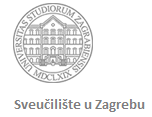Home » KNJIŽEVNI SEMINARI – 3. ili 5. semestar (Page 2)
Category Archives: KNJIŽEVNI SEMINARI – 3. ili 5. semestar
Američki postmodernizam i popularna kultura
Nositelj: dr. sc. Sven Cvek Nastavnik: dr. sc. Sven Cvek, Hrvoje Tutek ECTS-bodovi: 6 Jezik: engleski Trajanje: 1 semestar, III. ili V., IV. ili VI. semestar, zimski, ljetni Status: Izborni Oblik nastave: 1 sat predavanja i 2 sata seminara na tjedan Uvjeti za upis kolegija: Položen kolegij Uvod u studij engleske književnosti ili Uvod u […]
Irska kultura
Dr. Aidan O’Malley, visiting lecturerSubject: Modern literatureCourse title: Irish cultureECTS credits: 6Language: EnglishDuration: 1 semesterNastava u ovome kolegiju odvijat će se kumulativno kroz dva mjeseca (od 13.10. do 13.12. 2014.). Stoga, premda je u fakultetskom rasporedu naznačeno da se radi o dvjema grupama, zapravo je riječ o jednoj grupi studenata koji nastavu pohađaju u oba […]
Američko žensko pismo 19. stoljeća (arhiva)
Course title: American Women’s Writing in the Nineteenth Century (A, 19. st.) Subject: Nineteenth-Century American Literature Instructor: Dr. sc. Jelena Šesnić ECTS credits: 6 Language: English Duration: Fall semester Status: Elective Course type: 1 period lecture + 2 periods seminar Prerequisites: Enrolment in the 3rd or 5th semester Course requirements: Regular attendance; assignments in and […]
Pretvaranje prostora u mjesto: rana australska književnost
Naslov kolegija: Pretvaranje prostora u mjesto: rana australska književnost Nastavnica: dr. sc. Tihana Klepač, izv. prof. ECTS bodovi: 6 Jezik: engleski Trajanje: 3. ili 5. semestar Status: izborni kolegij Oblici nastave: 1 sat predavanja, 2 sata seminara tjedno Uvjeti za upis kolegija: Položen Uvod u studij engleske književnosti; upisan 3. ili 5. semestar Okvirni sadržaj […]
Britanski romantizam: poezija (arhiva)
Naziv kolegija: Britanski romantizam: poezija (raniji naziv kolegija: Poezija engleskog romantizma) Nastavnik: dr. sc. Martina Domines Veliki ECTS bodovi: 6 Jezik: engleski Trajanje: 3. ili 5 semestar Status: izborni Oblik nastave: 1 sat predavanja i 2 sat seminara tjedno Uvjeti: položen Uvod u studij engleske književnosti ili Uvod u studij engleske književnosti 1 i 2 […]
Američka književnost i kultura 1: Američki Jug
Naziv kolegija: Američka književnost i kultura 1: Američki JugNastavnik: dr. sc. Douglas Ambrose, red. prof. (Fulbright gostujući profesor)ECTS-bodovi: 6Jezik: engleskiStatus: izborni kolegijTrajanje: 3. ili 5. semestarUvjet za upis kolegija: položen Uvod u studij engleske književnosti_________________________________________________________________________________________ COURSE GOALS:Tell about the South. What’s it like there. What do they do there. Why do they live there. Why […]
Američki roman 19. stoljeća (arhiva)
Naziv kolegija: Američki roman 19. stoljeća Nastavnica: Dr. sc. Jelena Šesnić, izv. prof. ECTS bodovi: 6 Jezik: engleski Trajanje: zimski semestar (3. ili 5.) / ljetni semestar (4.ili 6.) Status: izborni Oblik nastave: 1P+2S Uvjeti za upis kolegija: Uvod u književnost Cilj i sadržaj kolegija: Roman je bez sumnje reprezentativna narativna vrsta u američkoj književnosti. […]
Shakespeare
Naslov kolegija: ShakespeareNastavnica: dr sc. Janja Ciglar-Žanić, red. prof.ECTS-bodovi: 6 bodova.Jezik: engleskiStatus: izborni kolegij.Trajanje: 1 semestar (III ili V semestar)Oblik nastave: 1 sat predavanja i 2 sata seminara tjedno.Uvjeti za upis kolegija: završen II ili IV semestar.Opis/ Sadržaj kolegija: Kolegij će biti posvećen proučavanju odabranog broja Shakespeareovih drama iz perspective novih teorija književnosti i kulture. […]
Aspekti američkog romantizma – arhiva
Književni seminar akademska godina 2011/12.Zimski semestarDodiplomski studij (2-3. godina) Naziv kolegija: Aspekti američkoga romantizma (A, 19. st.)Nastavnica: Dr. sc. Jelena ŠesnićECTS-bodovi: 6Jezik: EngleskiTrajanje: 3. ili 5. semestar; zimski Status: IzborniOblik nastave: 1 sat predavanja + 2 sata seminaraUvjeti za upis kolegija: Upisan 3. ili 5. semestar studija_______________________________________________________________________________________ Cilj kolegija:The period spans the decades from the […]
Engleski romantizam
Dr. sc. Ljiljana Ina GJURGJAN, redoviti profesorNaziv kolegija: Engleski romantizam3. ili 5., 4. ili 6. semestar, zimski, ljetniECTS bodovi: 6Jezik: engleskiTrajanje:1 semestarStatus: izborniOblik nastave: 1 sat predavanja i 2 sat seminara tjednoUvjeti: Upisan 3. ili 5., 4. ili 6. semestar (zimski, ljetni) studijIspit: Kontinuirano praćenje. Ocjena se izvodi iz ocjena dvaju kolokvija (jedan tijekom semestra […]
Američki postmodernizam i popularna kultura-arhiva
Nositelj: dr. sc. Stipe Grgas, red. prof.Nastavnik: dr. sc. Sven CvekECTS-bodovi: 6Jezik: engleskiTrajanje: 1 semestar, III. ili V., IV. ili VI. semestar, zimski, ljetni (i za ak. god. 2013/14.)Status: IzborniOblik nastave: 1 sat predavanja i 2 sata seminara na tjedanUvjeti za upis kolegija: Položen kolegij Uvod u studij engleske književnostiObaveze studenta: aktivno i redovito sudjelovanje […]
Irska kultura 2013-14
Dr. Aidan O’Malley, visiting lecturerSubject: Modern literatureCourse title: Irish cultureECTS credits: 6Language: EnglishDuration: 1 semesterStatus: electiveCourse type: lectures, seminarsPrerequisites: enrolment in 3rd / 5th semesterCourse requirements: regular attendance and active participation in discussion; class presentation, to be developed into a 1500-2000 word essay; mid-term and end of term written exam.Course description: This course provides an […]
Viktorijanski roman – poetika i kulturna politika (arhiva)
Naziv kolegija: Viktorijanski roman – poetika i kulturna politika EN1K03Nastavnica: dr. sc. Tatjana JUKIĆ, red.prof.ECTS-bodovi: 6Jezik: engleskiTrajanje: jedan semestar, 4. ili 6. semestar (u nekim ak. godinama i 3. ili 5.)Status: izborni kolegijOblik nastave: 1 sat predavanja, 2 sata seminara tjednoUvjeti za upis kolegija: upisan treći ili peti, četvrti ili šesti semestarCilj kolegija: Kolegij se […]
Viktorijanska književnost: žanrovi i teme (arh.)
Naziv kolegija: Viktorijanska književnost : žanrovi i teme EN1K04 do 2020/21 Nositelji i izvođač: dr. sc. Borislav Knežević, red. prof. ECTS-bodovi: 6 bodova Jezik: engleski Trajanje: 1 semestar (III. ili V, IV ili VI semestar) Status: izborni u okviru ponude književnih kolegija Oblik nastave: 1 sat predavanja i 2 sata seminara tjedno Uvjeti: upisan treći […]
Suvremeni američki roman (arch.)
Naziv kolegija: Suvremeni američki roman Instructor: Prof. Stipe Grgas ECTS credits: 6 Status: elective Semester: 3rd and 5th or 4th and 6th Enrollment requirements: enrollment in the 3rd and 5th or 4th and 6th semester Course description: The course explores a number of novels which have been published since 9/11. The argument for targeting this […]



